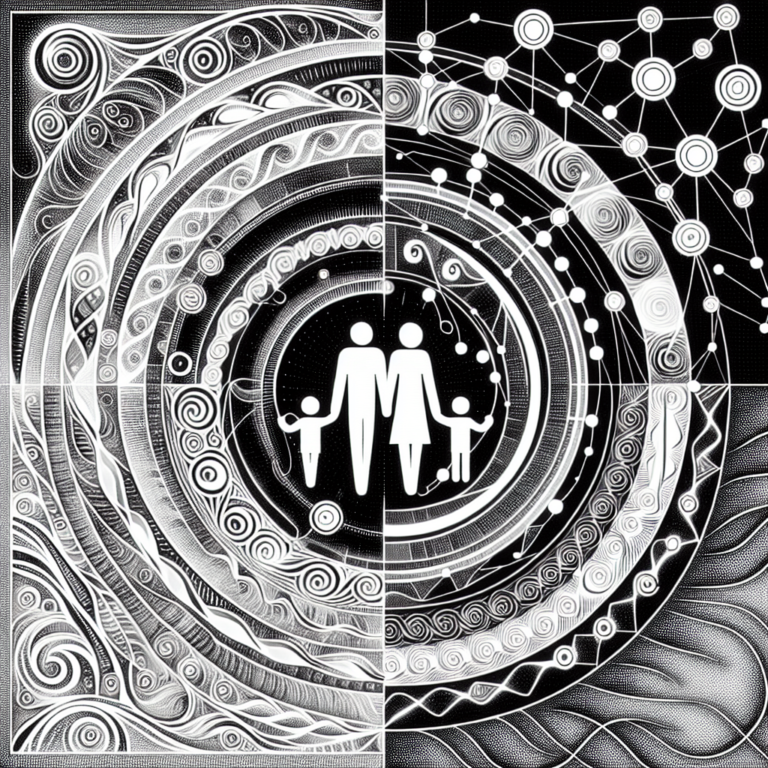Karma is a concept that has fascinated humanity for centuries, transcending cultural boundaries and resonating deeply within various philosophical and spiritual traditions. At its core, karma refers to the law of cause and effect—every action has consequences, shaping not only the current life but also future existences. In this comprehensive exploration, we will delve into the origins of karma, its philosophical implications, its guiding principles, and how it applies to daily life.
Origins of Karma
The term “karma” is derived from the Sanskrit word “karman,” which translates as “action” or “deed.” It holds a significant place in various Eastern religions such as Hinduism, Buddhism, and Jainism. Each tradition offers nuanced interpretations of karma, yet they all share a common thread of understanding actions and their consequences.
Karma in Hinduism
In Hindu philosophy, karma is intricately woven into the beliefs surrounding dharma (moral duty) and samsara (the cycle of birth, life, death, and rebirth). Actions performed in accordance with dharma lead to positive karma, enhancing one’s future experiences, while actions contrary to dharma contribute to negative karma, leading to suffering and challenges in future lives.
Karma in Buddhism
Buddhism also emphasizes the concept of karma, primarily focusing on the intention behind actions. According to Buddhist teachings, it is not merely the act itself that generates karma, but the underlying intention influencing that act. This nuanced understanding underscores the importance of mindfulness and compassion in our actions.
Karma in Jainism
In Jain philosophy, karma is approached with a slightly different lens, where it is viewed as a form of matter that attaches to the soul as a result of our actions. The accumulation of karma can hinder the soul’s ultimate liberation. Jains emphasize non-violence and truthfulness not only as moral values but as essential practices for reducing karmic attachments.
The Philosophical Implications of Karma
Karma raises profound philosophical questions regarding free will, responsibility, and the nature of existence. Is the principle of karma deterministic, implying that every action leads to a preordained outcome? Or does it coexist with free will, allowing individuals the capacity to choose their actions and thus their futures?
Determinism vs. Free Will
While the concept of karma suggests that our actions lead to specific consequences, it does not negate the existence of free will. Each individual possesses the ability to choose their actions, and these choices shape their karmic footprint. The interplay between karma and free will reflects the complexity of human existence, where choices and their aftermath are interconnected.
The Moral Dimension of Karma
Karma also serves as a moral compass, guiding individuals toward ethical behavior. The understanding that actions have direct consequences encourages individuals to consider the impact of their deeds not only on themselves but also on the broader community and environment. This acknowledgment fosters empathy and a sense of responsibility, promoting a more harmonious society.
The Principles of Karma
At its essence, karma operates on several fundamental principles that elucidate its workings in our lives.
The Principle of Cause and Effect
The foundational principle of karma is the law of cause and effect. Every decision we make and every action we take produces results—some immediate and some unfolding over time. This principle empowers individuals to recognize that they are the architects of their own lives, reinforcing the importance of conscious decision-making.
The Principle of Intent
As mentioned earlier, the intention behind an action significantly impacts its karmic outcome. Good intentions often yield positive results, whereas harmful intentions can lead to negative consequences. This principle encourages a reflective approach to actions, urging individuals to cultivate compassion and sincerity in their pursuits.
The Principle of Impermanence
The outcomes of actions may not always be immediate; instead, they unfold over time and vary according to several factors, including circumstances and the individual’s karmic history. This principle aligns with the broader Buddhist concept of impermanence, suggesting that everything is in a constant state of change, including karma itself.
The Principle of Social Impact
Karma is not merely an individual affair; it has a profound social dimension. Every action resonates within a community, influencing collective karma. Engaging in altruistic actions like charity and compassion can uplift societal karma, leading to positive outcomes for the community at large. Conversely, harmful actions can diminish collective well-being.
Practical Applications of Karma in Daily Life
Understanding karma can profoundly impact an individual’s approach to daily life, relationships, and personal growth. Here are some practical applications:
Mindfulness and Awareness
Practicing mindfulness encourages individuals to be aware of their thoughts and actions. By recognizing the potential consequences of their deeds, individuals can make more conscious choices that align with their values. Regular mindfulness practices, such as meditation, can enhance an individual’s ability to respond thoughtfully rather than react impulsively.
Cultivating Positive Intentions
To cultivate positive karma, it is essential to foster a mindset of compassion and kindness. Acts of service, gratitude, and love not only contribute to positive karma but also create ripples of goodwill in the world. Simple gestures can lead to profound changes in both personal experiences and the lives of others.
Resilience in Adversity
Understanding the principles of karma can help individuals develop resilience. When faced with challenges or negative experiences, recognizing them as potential lessons can foster growth and wisdom. Rather than viewing difficulties as punitive measures, they can be seen as opportunities for personal evolution and reflection.
Building Ethical Relationships
Karma encourages individuals to nurture ethical relationships characterized by trust, honesty, and reciprocity. By cultivating healthy interactions and avoiding harmful behaviors, individuals contribute to positive karma not only for themselves but for their relationships as well.
Conclusion
Karma is a profound and multifaceted concept that transcends the boundaries of theology and philosophy. It encapsulates the essence of action and consequences, guiding individuals toward ethical living and personal growth. By understanding karma and its principles, individuals can navigate the complexity of existence with mindfulness, intentionality, and compassion.
As we walk our unique paths in life, the law of karma serves as a reminder of our interconnectedness and responsibilities toward ourselves and others. By embracing this understanding, we can actively participate in shaping our destinies, contributing to a harmonious and compassionate world.
FAQs
What is the meaning of karma?
Karma refers to the principle of cause and effect, where every action has consequences that can manifest in this life or future existences. It emphasizes that our deeds shape our experiences and spiritual development.
Can karma be changed or altered?
While individuals cannot change the past actions that have created karma, they can influence their future through conscious and positive actions in the present moment.
How does karma relate to free will?
Karma operates alongside free will. While actions have consequences, individuals have the freedom to choose their actions, thus shaping their karmic outcomes.
Is karma a form of punishment?
Karma is often misunderstood as punishment. However, it is better viewed as a natural law that allows for learning and growth through experiences rather than as a punitive measure.
How can one improve their karma?
Improving karma involves cultivating positive intentions, practicing kindness and compassion, engaging in self-reflection, and making ethically sound choices that benefit both oneself and others.
https://open.ai/c99b418ab303ed0fc0edda1511b00908 , Sure! What kind of prompt are you looking for? It could be for writing, art, brainstorming ideas, or anything else. Let me know what you have in mind!, #Understanding #Karma #Law #Effect #Explained, #Understanding #Karma #Law #Effect #Explained, 1734009182, understanding-karma-the-law-of-cause-and-effect-explained





